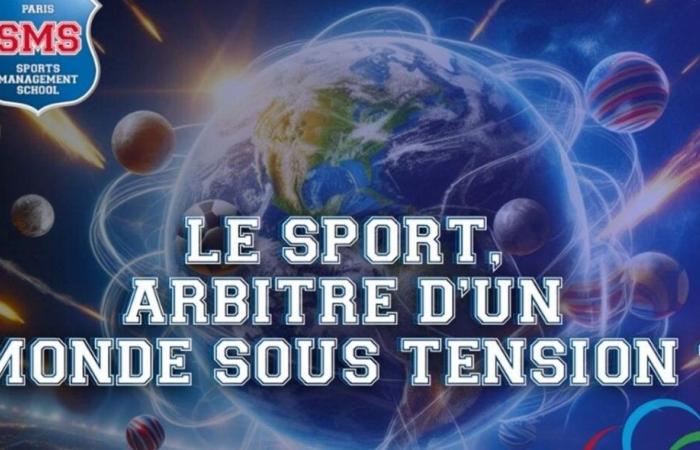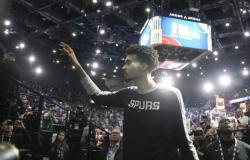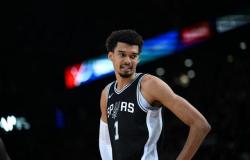Russian invasion in Ukraine, conflict in Gaza, rise of extremism… It is in this context that the inauguration ceremony of Donald Trump will be held on January 20, the president who used the Winter Olympics to thaw the relations between the two Koreas.
If already in Antiquity, sporting competitions were intended to organize a confrontation “pacified” between nations, the contemporary era is distinguished by both ultra-mediatization, antagonistic perceptions such as questions of ecology, gender, religion… all in a globalized environment. The pitfall is that for more than a century, sporting bodies have been created by Westerners (often Europeans) to convey their vision of the world. Victim of its success, sport has developed a real economic dependence on which countries of the « sud global » are willing to maintain. Russia 2018, Qatar 2022, Saudi Arabia 2034 for FIFA, Beijing 2022 and perhaps India for the 2036 Olympics… so many attributions by sports authorities linked more to the capacity of these (news) “powers” as well as their exemplary nature in terms of human rights, respect for the environment or other ethical issues.
Founded on patriotic pacifism, the renovation of the Olympic Games imagined by Pierre de Coubertin induces a shared vision of the mode of international interactions. In fact, these historically come from Western civilization. If the 20th century was economically dominated by Western countries, the “rest of the world” seems at least determined to take part in major decisions or even to organize alternative leadership. Since January 1, 2024, Brazil, Russia, India, China and South Africa have been joined by Iran, Saudi Arabia, Egypt, Ethiopia, Argentina and the United Arab Emirates to form BRICS+.
Statesman
Representing nearly 45% of the inhabitants of our planet for 35% of global GDP, these nations also wish to use sport (politically) by hosting competitions at the international exhibition. Whether thanks to the interest of their markets for Western advertisers or thanks to the sponsorship investment potential of their economic leaders, the 21st century is much more favorable to them than the previous one. To be convinced of this, you just need to look at the ATP/WTA or Formula 1 calendars. In search of growth drivers (or survival), the automobile industry has clearly opted for these territories at the to the detriment of Europe. As a symbol Thierry Sabine had designed a car-motorcycle-truck rally starting from Paris to go to Dakar. 47 years later, it is now a 12-stage race only in Saudi Arabia… while keeping the name of « Dakar »showing that petrodollars have taken precedence over geography.
Statesman
To go “faster, higher, stronger”nothing like a football World Cup and/or the Olympic Games. The IOC like FIFA being real political organizations, they had to add to the leverage « argent », « l’influence ». Since 2000, 3 BRICS+ members have been designated “host countries” by the IOC and 5 by FIFA. If the principle of “continental rotation” almost becomes a reality, let us agree that it is the result of several phenomena: first of all, the difficulty in obtaining the consent of North American and European populations to finance such events, explosion in organizational costs and security and even health risks. If such a context has already been favorable to the Chinese, Qatari, Russian and Saudi applications, Africa has until now been largely forgotten (with the exception of South Africa in 2010). Although open to criticism from a sporting and ecological point of view, the recent attribution of the 2030 World Cup partly to Morocco is therefore a first step.
-Apart from their financial power, few things link these new « sponsors » major sporting events if not the questioning of Western hegemony and its postures deemed hypocritical at best and vexatious at worst. In a century, the Western bloc has made the democratic model and its values its benchmark. It is clear that the trend is downward, going from 55% of the world population living in a democracy in 2000 to 29% in 2021. Worse, the political power of major democracies is facing real difficulties: economic, environmental and societal.
Paradoxically, the BRICS+ provide more guarantees to international sports bodies to build infrastructure, secure competition sites and deliver them on time… “whatever it costs”. Despite the pharaonic expenses (220 billion dollars) and the deaths on the construction sites of the 2022 World Cup, the call for a boycott from the leaders of the “West” fizzled out in the eyes of the fans, as for the 2 Olympic Games Chinese by the way. Where our policy makers struggle to find answers “consensual” faced with issues such as money, gender, religion, work… those of the BRICS+ seem to have the capacity to impose new leadership. As an indicator, the invasion of Ukraine by Putin’s troops had the consequence of redividing the world into 3 blocs: those who condemn (36.2% of the world population) or support Russia (33.1 %) but also those who do not position themselves (30.7%). On the other hand, the international federations have largely and logically chosen one camp, that of Ukraine. Logically because these bodies were created, are directed and financed by the West.
Statesman
From the exclusion of Russian athletes during Paris 2024, to the inability to stem the excesses linked to the Israeli-Palestinian conflict, through the growing influence of the Gulf countries, the historically European vision of sport and its ethics are damaged. Even the Court of Justice of the European Union and its judgments seem to record a form of decline in favor of almost limitless commodification, as stated in the European Superleague Company Judgment of December 21, 2023. Obviously, it is still too early to measure the effects of the recent American election on geopolitics but there is no doubt that Donald Trump will also use the symbolic value of sport… as he did in 2018 in relation to North Korea.






